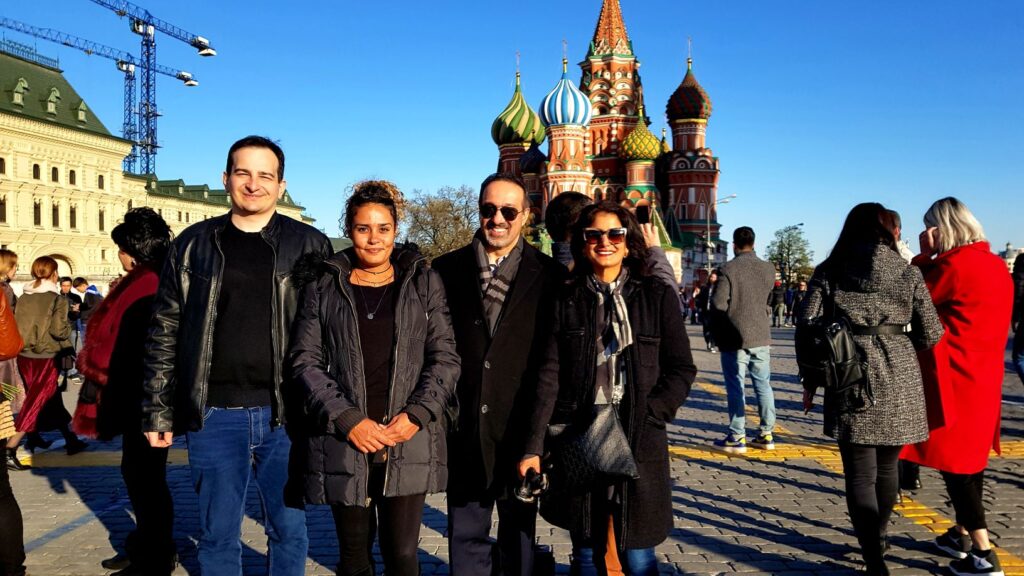CIRS Research Delegation Visits Moscow

As part of the CIRS research initiative on “Russia and the Middle East,” a delegation of CIRS scholars traveled to Moscow on April 28–May 2, 2019. Mehran Kamrava, Zahra Babar, and Suzi Mirgani met with academics, diplomats, journalists, and political commentators who shared their insights into the evolving relationships between the Russian Federation and the countries of the Middle East. The team met with various research centers and think tanks that work on Middle Eastern studies and that aid the Russian government in understanding the Middle East so it can act appropriately with situations in the region as a whole.
On April 29, 2019, the CIRS team attended three meetings. The topics discussed provided an overview of the relationship between Russia and the Middle East as a whole as well as detailed discussions on the relations between Russia and specific countries, including Libya and maintaining the relationship between Haftar and Tripoli; Iran and the fragility of its relations with Russia due to fear of provoking the US; and Egypt and Algeria’s economic relations with Russia. Regarding the topic of Islam in Russia, discussions revolved around identifying the different types of Islam in the region as well as the implicit understanding reached between the Russian state and its Muslim populations as a result of their mutual adversary—the West. The discussions then involved how radical Islam is increasingly becoming a threat to the region with around 5,000 Muslin Russians joining radical groups, including Daʿesh. Finally, the debate turned to discussing Russia’s attempts at re-involvement in Middle Eastern affairs post the fall of the USSR in the 1990s, including its current involvement in the Syrian crisis and its emphasis on maintaining strong military and political ties to offer resolutions to the conflict.
On April 30, 2019, the CIRS team attended four meetings. The first topic that emerged was Russia’s general disinterest in maintaining long-term economic relations with the Middle East. Russia is more interested in relations with the West when it comes international economic relations, which explains its short-term projects with Middle Eastern countries. Regarding the Syrian conflict, the team discussed how Russia initially attempted to cooperate with the US to fight ISIS, but both countries had conflicting goals. Russia’s objective was to avoid regime change in Syria. The focus shifted to Russian relations with Morocco, which it views as a market for grain, fertilizers, agricultural projects, and fishery. Russia’s relationship with Morocco is longstanding and comparatively stable. However, in the case of Western Sahara, Russia does accept the status quo of Moroccan control over the territory and remains as neutral as possible. Further, the discussion turned to Russia’s often disappointing relationship with NATO. In conclusion, the CIRS team observed the strong relationship between the Russian government and its academic institutions, a liaison based on a direct line of communication between researchers and bureaucrats aimed at improving the state’s knowledge of the region and guiding its actions in the Middle East.
Article by Younis Al-Agha, CURA Publications Fellow